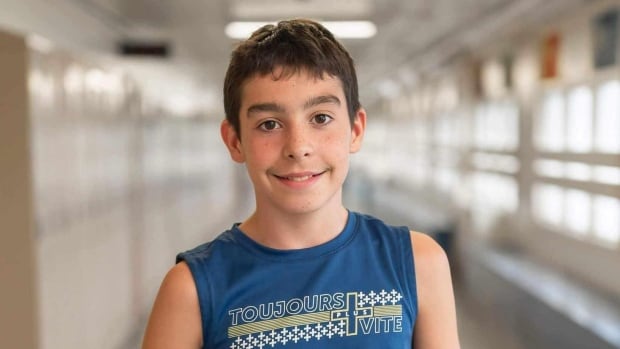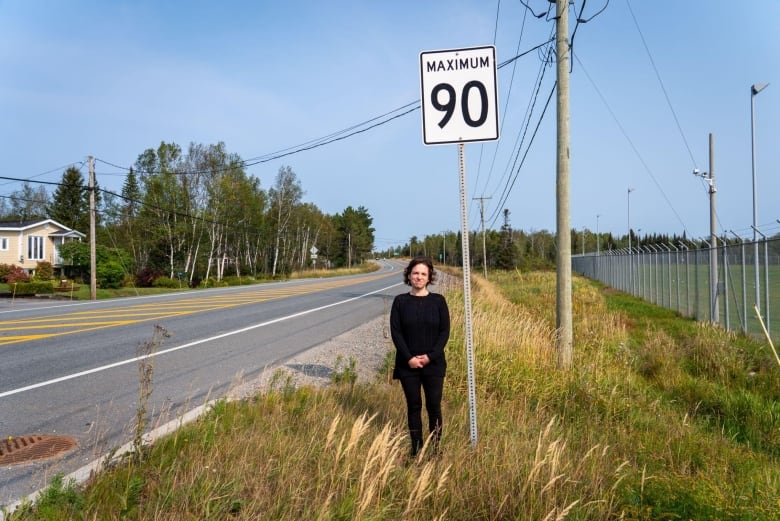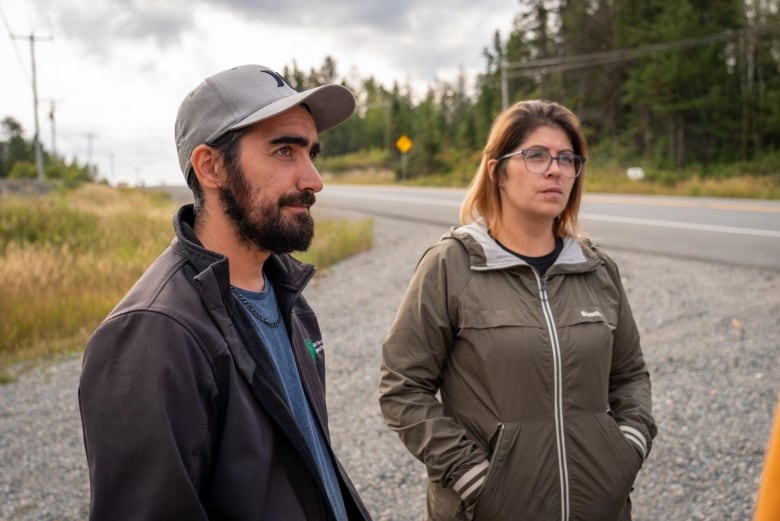
Nathan Macameau was returning home from eighth grade when he stepped off the school bus and was hit by a car while crossing a two-lane highway in northwestern Quebec.
He was just steps from his home in the town of Amos, on a rural road with a 90 km/h speed limit. His aunt, Rose-Marie Paradis, says the day of the accident was her nephew’s first day taking the bus.
“He was so curious and so open to the world,” said Paradis. “He really believed in making the world greater by respecting animals and the environment and people around him.”
The car that hit the 13-year-old on Aug. 27 approached from the opposite lane, she said, and it’s still unclear if the driver was speeding.

Provincial police confirmed the bus had its signals on and that an emergency call came through at 4:30 p.m. on Aug. 27 on Highway 111.
Transported to hospital after the accident, Paradis says Nathan died from his injuries days later — donating three of his organs and two heart valves.
Just weeks after his death, Paradis is calling for a change in policy for school buses. Founding a group in her nephew’s honour, Projet Nathan, she hopes to help prevent similar situations moving forward.
‘Something has to change’
Nathan’s father, Dominique Macameau-Paquette, says he fully supports Paradis in her efforts. His priority is to force school buses to make stops that don’t require students to cross dangerous roads.
“If he got off the bus on the right side, this wouldn’t have happened. Something has to change so that no one has to go through this,” said Macameau-Paquette.
“It’s not the first time and it won’t be the last, but we have to avoid other tragedies like this.”

While Nathan’s bus route did pass on the same side of the street as his home, Paradis says the teen opted to get off earlier to save time — an extra 20-minute wait for the bus to loop back around.
“I don’t think it’s a decision that they should be able to make themselves because at 13 you’re really naive and you don’t even drive yet, so I don’t think you have experienced enough on the road to say, ‘Yeah, this road is safe,'” said Paradis.
“Parents should be giving the permission.”
Pointing to other provinces that have regulations regarding where bus drivers can pick up or drop off students, she says Quebec needs to get on the same page.
In the coming weeks, she’s preparing to launch a petition to submit to the National Assembly.
She wants the province to review its rules for school buses. She’s proposing that mounted cameras on buses should monitor other vehicles, and the footage used to issue tickets for road violations by drivers.
After making a public Facebook group for other parents and concerned citizens, Paradis says some have already attested to the fact that their primary school kids are getting off the bus on the wrong side of the road.
Transport Ministry says it’s a ‘duty’ to drive safely
Marie-Soleil Cloutier, professor at Institut national de la recherche scientifique (INRS) and head of the Pedestrian and Urban Space Laboratory in Montreal, says regulations regarding school buses have changed significantly in the past 20 years — now including steep fines and demerit points for violations.
“We saw a real decrease in the collisions involving children,” said Cloutier. “So it did work.”
But she says from the data she’s reviewed, it seems fewer people are following the rules despite the high visibility of school buses with bright colours, flashing lights and a stop sign.
“If people don’t see the buses, that means that there’s too many distractions within the car,” she said.
Provincial police confirmed no arrests have been made yet, but an investigation is ongoing.
The office of Quebec Transport Minister Geneviève Guilbault said its thoughts go out to the community affected by the accident. In an emailed statement, the office points to Guilbault’s action plan that was launched last year to instil road safety culture in Quebec.
“Our children’s safety on their way to and from school is non-negotiable,” read the statement.
“Above all, road safety is a collective responsibility; we all have a duty to abide by the regulations and drive safely. We owe it to our children.”